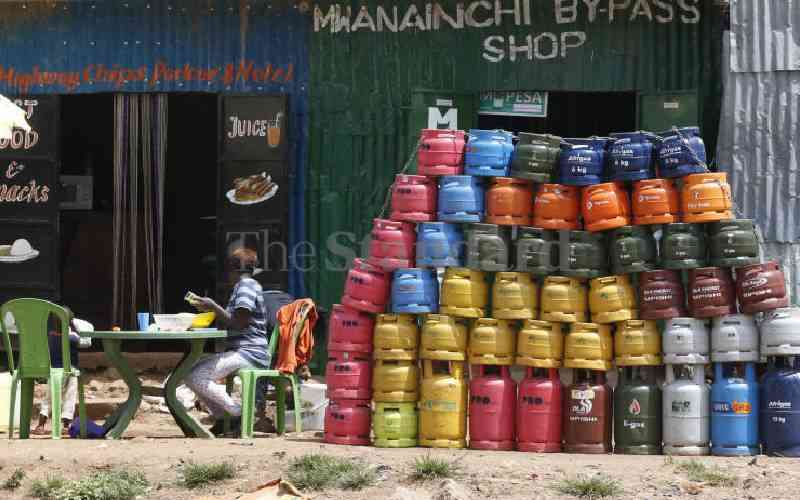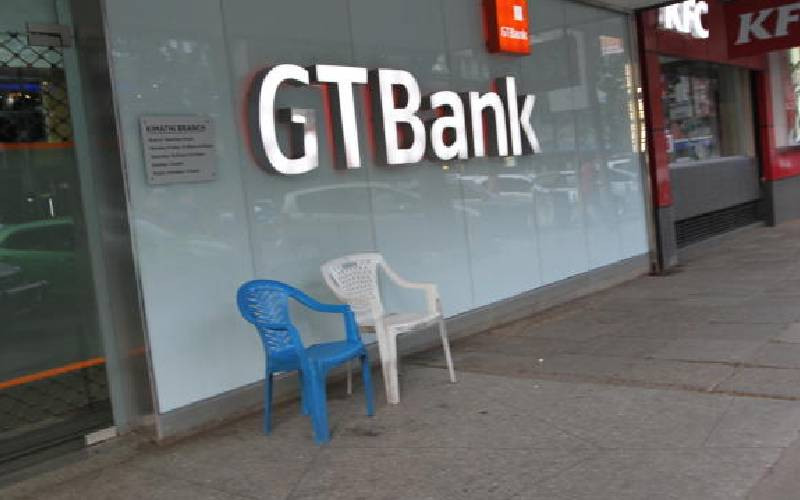
Affordable housing has been at the core of government policies since independence. The policy is mainly driven by a shortage of housing in the urban areas (read Nairobi).
This has led to an increase in rent and sprawling slums. Why the shortage, and what's the solution? Affordable housing is available in rural areas where most citizens build houses with the available materials and on their own land.
Each community from the Maasai to the Mijikenda knew how to build a house suited to their respective weather conditions and available materials.
Noted the use of makuti (palm leaves) along the coast and bricks in western Kenya? This keeps the cost low. If we factored in these houses, the housing crisis would appear less severe in Kenya.
Curiously, when the British came to Kenya at the turn of the last century, they were quick to learn from us by using locally available materials. They probably copied our architecture, including the use of mud and wood, which was plenty.
Former British homes have shingle roofs; hardwood was readily available.
A number have mud walls and have stood the test of time. Geoffrey Buxton and Sir John Ramsden's houses in Nyandarua's Happy Valley have mud walls!
One of these houses has been there for more than 100 years. In urban areas, land costs more than houses. That's why multiple dwellings have become fashionable to get the most out of available land.
Land is finite, but the space above the land is infinite. It's limited by the available technology and the laws of science.
Let's be real: as long as land remains finite, and the population keeps on increasing, it's unlikely that rent will fall or houses become more affordable.
Population growth
Let's address affordable housing from the basics, looking at supply and demand. Demand is easy to explain.
The rising population and the pride of owning a home in urban areas keep the demand up. Many Kenyans own homes in rural areas but that is not considered a house. Demand can be controlled by reducing population growth, which is resisted by traditions and religion.
Devolution could also reduce the demand for housing as more services go to the counties. But it seems devolution increased the allure of Nairobi.
How about increasing the supply of houses? We can release more land for housing. But keen observers will note that Nairobi and other big towns do not have enough land.
The available land is on the outskirts. Remember Ruaka, Kikuyu, Ongata Rongai and now Ruiru or Mwimuto.
The invisible hand of capitalism has been releasing more land to the market.
My dad tried and failed to buy land from "Mbari ya Igi" clan in 1927 near present-day Tatu City. That land is now changing hands through the market, ignoring traditions.
The high prices needed to "release" land to the market means that affordability is momentary before prices rise again.
Remember land in Ruai or Kahawa Sukari, once considered remote? The other alternative is to put more high-rise residential houses. Singapore is a good example.
But that must be accompanied by services from schools to walkways, sewerage, water, power and roads.
The lack of such services reduces affordability. How many reading this buy water or pay service charges?
An easier solution would be to borrow from the colonialists and use locally available materials. Why must a good house be made of stone blocks? Why not use other materials like mud, wood or even plastic? Why are bricks not widespread?
A visit to Ndarugu shows stones can run out unlike soil, which makes mud or bricks. One key reason we rarely use easily available materials is insecurity. One of the paradoxes of the last 10 years is that we have recruited more policemen but the walls around our houses have got higher!
Remove walls around houses and grill windows and doors and the cost of building houses will fall, making them more affordable. If we can use makuti in high-end hotels, why not for our homes?
Locally available materials save transportation cost, increasing affordability.
We have not talked much about interest rates and mortgages or outright purchase of houses; only a small percentage of the population uses this route.
Beyond the market is the role of the visible hand of the government. It could increase affordability through private-public sector partnerships and the Kenya Mortgage Refinancing Corporation.
We could also set new rules and regulations. Why can't we convert the empty offices into apartments? Who said one must commute to work? By providing housing to the masses, we get into a trap.
Higher housing prices, including rent, bring more houses to the market.
If we made the house more "affordable," (read cheap), developers would have no incentive to bring more houses to the market. Additionally, the State could reduce affordability by taxing rent.
By getting less income from rent, developers are dissuaded from putting up more houses on the market. Affordability goes beyond ownership to renting.
Governments elsewhere subsidise housing. Do we have the money to do that? Affordable housing is a worthy goal. We must define it broadly to include rural areas.
It's not just about Nairobi, new cities and skyscrapers. After all, our urbanisation rate is about 30 per cent. Why ignore 70 per cent?
 The Standard Group Plc is a multi-media organization with investments in media platforms spanning newspaper print
operations, television, radio broadcasting, digital and online services. The Standard Group is recognized as a
leading multi-media house in Kenya with a key influence in matters of national and international interest.
The Standard Group Plc is a multi-media organization with investments in media platforms spanning newspaper print
operations, television, radio broadcasting, digital and online services. The Standard Group is recognized as a
leading multi-media house in Kenya with a key influence in matters of national and international interest.











